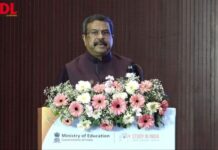
Artificial Intelligence (AI) is transforming the way societies learn, teach, and share knowledge, yet this transformation is unfolding unevenly across the globe. While AI offers unprecedented opportunities for innovation in classrooms, one-third of the world’s population still lacks internet access, and the most advanced AI tools remain accessible only to those with financial, technological, or linguistic privileges.
This unequal landscape shapes not only who benefits from AI in education but also which languages, cultures, and values are amplified within the systems that increasingly guide learning and decision-making.
A new anthology brings together global scholars, policymakers, and changemakers to examine the ethical, philosophical, and pedagogical challenges posed by AI’s disruptive role in education. The 21 thought-provoking essays included in the volume encourage debate, highlight tensions, and spark fresh visions for inclusive human–AI collaboration.
From reimagining outdated assessment methods to fostering an ethics of care in digital learning, the collection calls for a global dialogue that bridges divides and creates a shared commons for equitable AI integration in education.
Building on UNESCO’s Recommendation on the Ethics of AI, its Guidance on Generative AI in Education and Research, and twin competency frameworks for teachers and students, the anthology envisions a future where curricula, pedagogy, and governance are guided by principles of human rights, social justice, and inclusion.
Also Read: Vedanta’s Anil Agarwal commits ₹21,000 crore to build world-class education in India
In this moment of rapid technological change, establishing a global commons for AI in education is not just a choice — it is a necessity to ensure that digital innovation benefits all, rather than a privileged few.



















